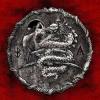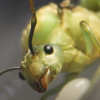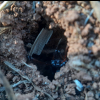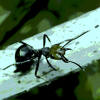Scientific Name: Nylanderia faisonensis
Common Name: Crazy ants (note: different from 'Tawny Crazy ants' and 'Raspberry Crazy Ants')
Distribution: South East to Mid-Atlantic regions of the United States.[/background]
Queen size: 5 mm.
Worker size: 2.5-3.00 mm.
Natural Habitat: Heavily forested areas, with an abundance of decaying plant matter, loves to nest in rotten logs and leaf litter. Usually found in almost completely decomposed, damp, rotten logs.
Circadian Activity: Mostly nocturnal, although they do occasionally forage in daylight.
Mating Flight: In most of the United States, Nylanderia usually fly in late May, through June. Flights have been spotted when the temperature exceeds 78°-80° F, and occur during the afternoon (3:00-4:00 pm). Alates can be seen at around knee-level when flying, and they like to cling to walls or trees during nuptial flight.
Queen Founding Method: Fully Claustral
Monogyne or Polygyne: Polygynous (sometimes very heavily, with more than 9 queens found in a single nest).
Average time from egg to worker: Egg to Larvae = 18-21 days; Larvae to pupae = 20-24 days, Pupae to worker = 15-18 days.
Recommended Temperature: 68° F to 75° F.
Recommended Humidity: Prefers substantial humidity.
Preferred Foods: Fruit flies, spiders, crickets, grapes, sugar water, honey water, sugar/honey water. These ants do have social stomachs. For some reason, they don't do incredibly well with sticky fluids like nectar or sugar water. They love them, but always seem to get stuck and either drown or become immobilized. Seem to prefer small insects, like fruit flies, that they can pick up and move into their nest.
Hibernation Details: Hibernates from October/November, to early March or late February. Can withstand below freezing temperatures, but should be kept at around 42°- 47° F.
Escape Barrier Methods: Extra virgin olive oil seems to work very well as well as Fluon.
Difficulty rating: Medium difficulty. Very well-behaved and don't like to wander off, but they can be picky and prefer certain foods over others. Their weakness to sugary liquids can also pose a slight concern, remember to remove any nectar or sugar water before it dries and becomes sticky.
Bite and/or Sting rating: Doesn't bite or sting, very gentle.
Special Care or Interesting Notes: These ants are particularly well behaved, and can be very fun to take care of. I would compare raising this species to Prenolepis imparis or slightly less energetic Lasius species.
Additional Links:
https://www.antweb.o...t=allantwebants
http://www.antwiki.o...onensis]Antwiki
http://bugguide.net/...bgpage]BugGuide
Information submitted by
VoidElecent
Edited by dspdrew, March 5 2022 - 7:46 PM.



















